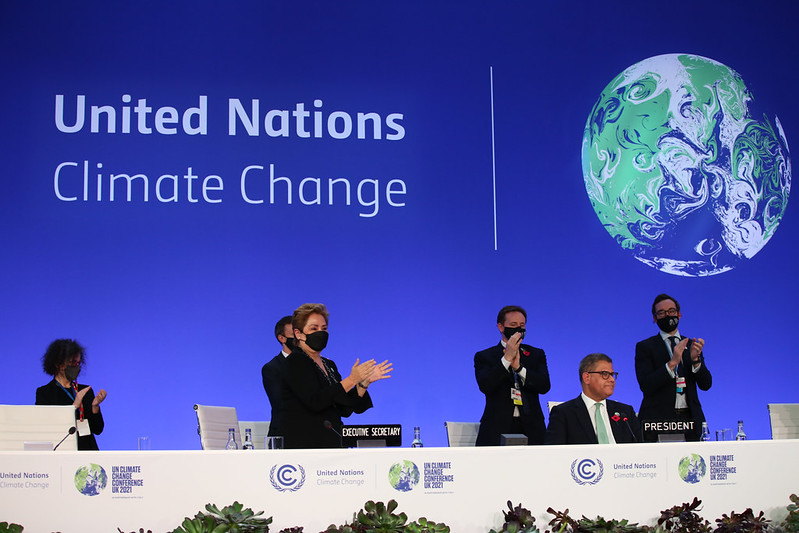
By Anders Lorenzen
As is customary at COP meetings, negotiators were working overtime to reach an agreement in Glasgow last weekend.
As we reached late afternoon on Saturday, it was becoming clear that the third draft of the agreement which was to become formally known as the Glasgow Climate Pact was going to be adopted.
The countries in the room most vulnerable to the impacts of climate change and those who have done least to cause it expressed regret over its lack of ambition and weak wording but acknowledged there had been some progress on this issue and reluctantly accepted the text.
Despite the softening of the wording in the latter stages of negotiations, analysts and commentators noted that it was the first time a COP agreement had directly mentioned fossil fuels – even though they are the main contributor to climate change – and cited this as definite progress
Phase-down and not out
The draft text initially stated that unabated coal and inefficient fossil fuel subsidies should be ‘phased out’ but this was softened after an 11th-hour intervention by India (supported by China and likely also Australia) who eventually managed to get this changed to ‘phase-down’. Is important to note that this is not for all coal but unabated coal which consists of coal power plants and developments where carbon capture measurements have not been installed.
Unsurprisingly this sudden change in the text left many countries at the forefront of climate change and in particular small island states deeply frustrated. But they chose not to oppose the text as it was nevertheless important to get the deal over the line, especially as it is the first COP agreement referencing coal.
Climate finance kicked down the road
While coal dominated discussions, another crucial issue was that of ‘loss and damage’, the principle within which money-rich developed countries would help to pay for the climate impact costs of developing countries. Six years ago at the Paris talks, it was agreed that a fund should be set up in which $100 bn annually is paid to poorer developing countries for these costs, however, the funds have yet to appear and Glasgow negotiators agreed a new deadline of 2025 for all the funds to emerge.
One of the key objectives of COP26 was to keep the 1.5-degree goal alive and the talks did just about do that, with the target still hanging on a knife-edge – countries will need to significantly increase ambitions to have any hope of reaching it.
The agreement has instead called on countries to come back next year, ahead of COP27 in Egypt, with increased Nationally Determined Contributions (NDC).
Time to enter emergency mode
Civil society was far from happy with the outcome – they feel that not being able to include a commitment to phase out fossil fuels – the main contributor to climate change – at a climate change summit highlights just how far we are from universal agreement about how urgent the climate crisis is.
Reacting to the deal Greenpeace International’s Executive Director Jennifer Morgen said: “They changed a word but they can’t change the signal coming out of this COP, that the era of coal is ending. If you’re a coal company executive, this COP saw a bad outcome.“
With Tanya Steele, Chief Executive at the World Wildlife Fund (WWF) stating: “We are encouraged by the recognition that nature must be an integral part of tackling the climate crisis and by commitments on curbing coal and fossil fuel subsidies. Requesting countries to bring their climate pledges in line with the Paris Agreement by the end of next year is also a small but significant step. We now need to see delivery with rapid, deep and ongoing emissions cuts alongside support for vulnerable countries facing current and future climate impacts.
The UN’s Secretary-General called the deal an important first step but it is not enough. “It’s time to go into emergency mode. The climate battle is the fight of our lives & that fight must be won”, he said.
There is a general agreement that whilst Glasgow was no Paris, small steps forward had been made and the mention of coal and fossil fuels in the text was significant.
At the same time, it’s clear that it’s unfair that developing countries are still paying the highest price for a problem they have done very little to cause.
Categories: climate change, COP26, energy, International Politics, UN
14 replies »